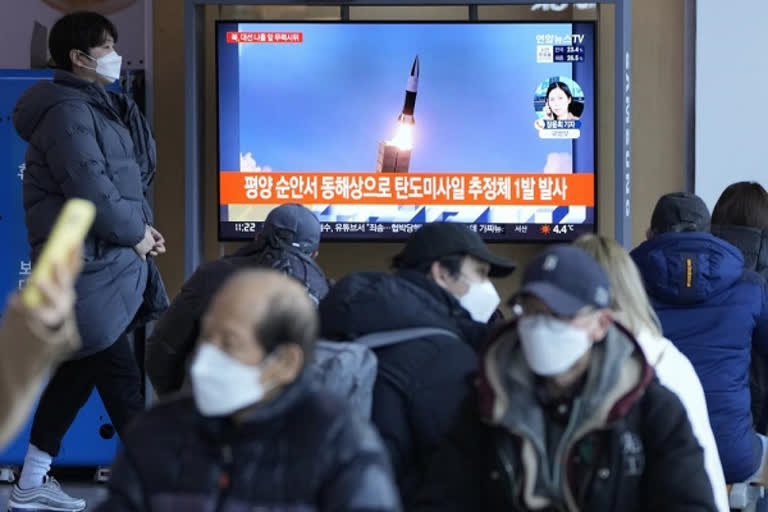Washington:The Biden administration says two North Korean missile launches in recent weeks were test firings of a powerful new long-range ICBM and warned Thursday that a full-range test could soon follow.The tests were of a missile reportedly larger than an ICBM North Korea launched in 2017 that was assessed to be capable of reaching the United States.
American missile defense and reconnaissance forces in the Pacific have been placed in a state of “enhanced readiness” in preparation for a follow-up to the recent, limited tests, the Pentagon announced. “The purpose of these tests, which did not demonstrate ICBM range, was likely to evaluate this new system before conducting a test at full range in the future, potentially disguised as a space launch,” said Pentagon press secretary John Kirby in a statement Thursday. North Korea has claimed the March 4 and Feb. 26 launches were merely to test cameras to be installed on a future spy satellite.
Multiple UN Security Council resolutions prohibit North Korea from firing ICBMs, and the U.S. will announce a new round of sanctions on Friday meant to make it more difficult for the country to access technology needed for its weapons programs, according to a senior U.S. administration official, who spoke on the condition of anonymity to discuss the upcoming action. The 2017 launch was part of a series of tests that prompted then-President Donald Trump to threaten North Korea’s leaders with “fire and fury” and brought the two countries to the brink of more serious conflict.
Also Read:North Korea fires suspected ballistic missile into sea
The new missile was first revealed to the public in 2020 during celebrations marking the 75th birthday of North Korea’s Communist Party in Pyongyang. It appeared to be an intercontinental ballistic missile that is larger than any of the North’s known ICBMs. The senior U.S. official who commented on Thursday did not estimate the maximum range. Last week’s launch was North Korea’s ninth round of weapons tests already this year as it uses a break in diplomacy to expand its military capabilities while attempting to pressure the Biden administration for concessions.
